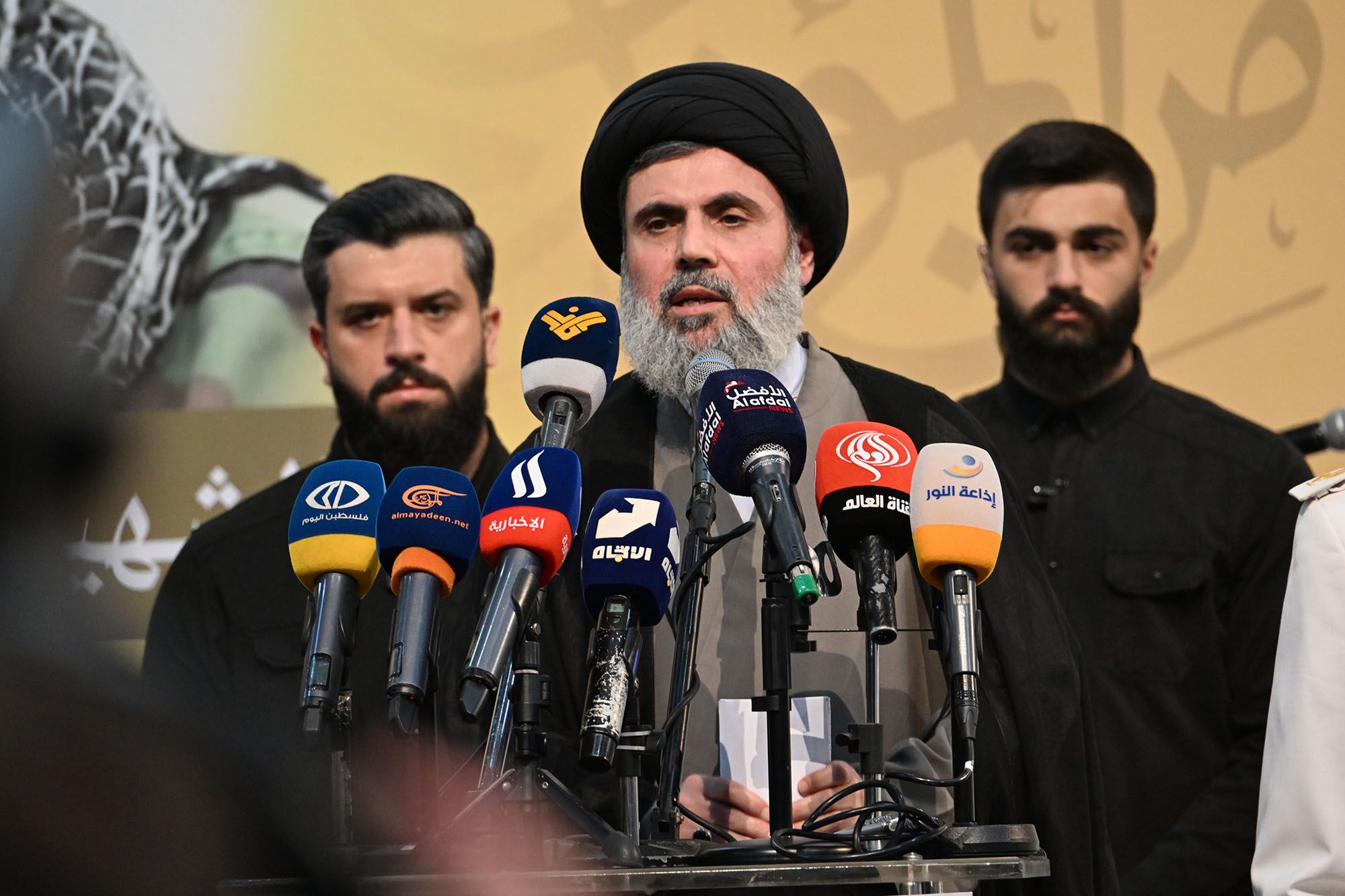A Successor in Waiting
October 22, 2024
BEIRUT, LEBANON – Hashem Safieddine, Hezbollah’s second man, is fast emerging as a potential successor to Hassan Nasrallah, the group’s long-time leader. This portends momentous changes in this region’s dynamics since Hezbollah plays a central role in shifting the Middle East’s balance of political power. His ascendancy to the top, however, still remains uncertain about whether the organization will make overtures at diplomacy or further entrench its confrontational stance.
END
Who is Hashem Safieddine?
In fact, Hashem Safieddine is another important figure within Hezbollah’s leadership, holding the top post as head of the group’s Executive Council. This position assigns him great latitude over what are traditionally defined as financial and social and political affairs. From southern Lebanon and a cousin of Nasrallah, Safieddine is known for his hard line in rhetoric and position with regard to the organization’s ideological roots firmly fixed in resistance against Israel and against Western influence in the Middle East.
Though he leads a very low public profile, Safieddine is believed to be one of the most strategic thinkers within Hezbollah. His theological and political Islam background, combined with vast experience in managing the organization’s internal structure, qualifies him to spearhead the organization. He is also very close to Iran’s leadership, especially with the IRGC, which is Hezbollah’s biggest supporter.
The Regional and Global Stakes
At this critical juncture when Hezbollah is deeply embroiled in regional wars-from the Syrian civil war to tensions along the Israeli-Lebanese border-the issue of potential leadership by Safieddine takes on added importance. Under Nasrallah’s stewardship, the realm of influence of Hezbollah has expanded far beyond the periphery of Lebanon, arming and funding proxy forces across the Middle East, from Yemen to Iraq.
Analysts say an eventual Safieddine takeover would further harden the organization’s strategic relationship with Iran, thereby continuing to advance Hezbollah’s involvement in regional power struggles, in part by opposing Saudi and Israeli interests. This would likely also further polarize Lebanon, in which Hezbollah’s military capabilities are still a highly divisive subject.
At the international level, Safieddine’s leadership can provoke more problems in the relations with the United States. Washington has already branded him an international terrorist and accused him of his involvement in Hezbollah’s military and financial operations. The United States is, therefore, considering the elevation of Hezbollah as a rising threat to stability in the region, concerned that the organization may embark on increasing campaigns against Israel, which will still be a setback for the efforts of the Gulf states to normalize their relations with this country.
Internal Fluctuations within Hezbollah
Safieddine’s rise to the top also signifies internal developments within Hezbollah. The movement appears to be plagued by severe difficulties, primarily public dissatisfaction in Lebanon concerning economic distress and corruption with some evident over many years that can be traced back to Hezbollah’s influence. Only time will tell if Safieddine, as a future leader, will adopt a more pragmatic approach toward resolving household issues or continue with the old script of resistance propagated by Hezbollah.
Observers note that Hezbollah’s change in leadership-if it happens-would happen without much internal wranglings and consultations with Iran. Nasrallah’s ideological influence within the organization as well as his personal charisma have held the organization intact, but Safieddine will need to negotiate between factional interests to keep the organization cohesive.
Such factions within Lebanese politics have argued that leadership by Safieddine will only continue to distance Lebanon from the rest of the international community, thereby rendering any foreign aid or economic revival impossible. However, others have stated that his stance would provide a deterrent against Israeli aggressions and help protect Hezbollah’s position in regional power-brokering.
A Change or Continuity?
The ascension of Hashem Safieddine into a position which could place him as the future head of Hezbollah brings severe implications to Lebanon and the rest of the Middle East. A new leader may perpetuate continued alignment with Iran and the resistance strategy of Hezbollah, although there is no prediction that this level of pragmatism or flexibility can be captured through more open diplomatic engagement.
For international actors, the challenge is going to be the new Safieddine at the helm, particularly in dealing with an even more ideologically driven Hezbollah. His reputation as a strategist also suggests that, while maintaining the group’s core agenda on resistance, he may opt to exploit new areas for asserting his worth over the international stage.
Ultimately, Safieddine’s chances at the leadership desk are a miniature portrayal of the balance of power in the Middle East where any power vacuum within the now-notorious Hezbollah causes ripples throughout the entire region. Only time will tell if this will heighten the tensions or create a new route to bargaining: a state of affairs that would not simply be dictated by the decisions of Safieddine but by the impermanence of their geopolitical landscape.
